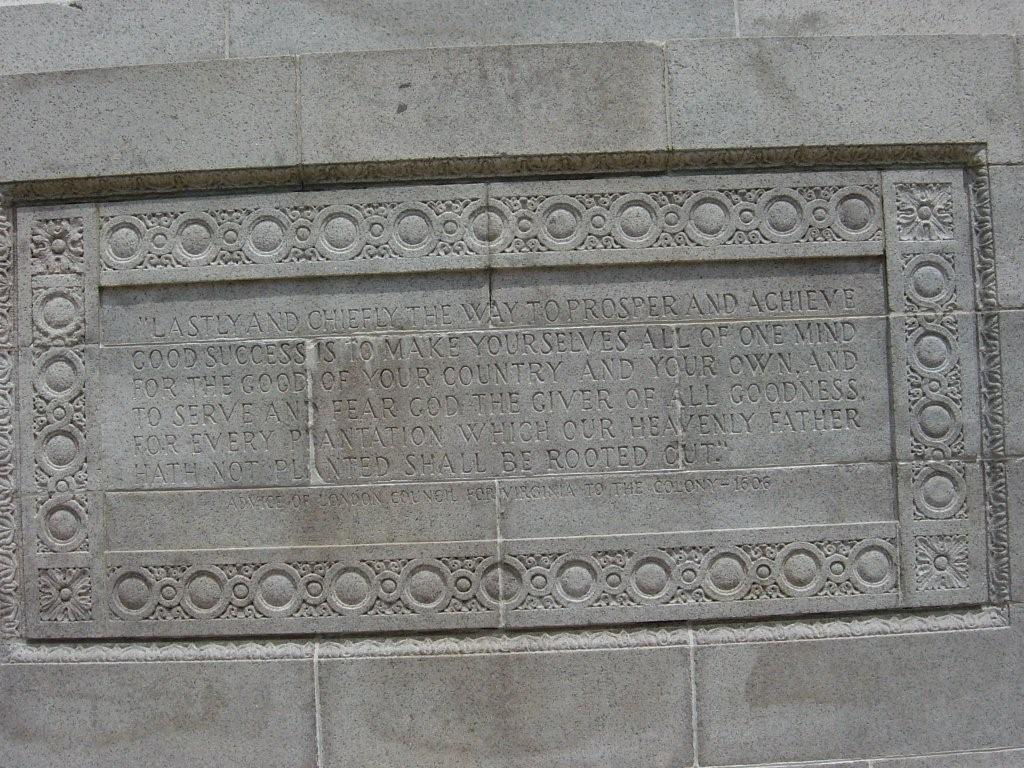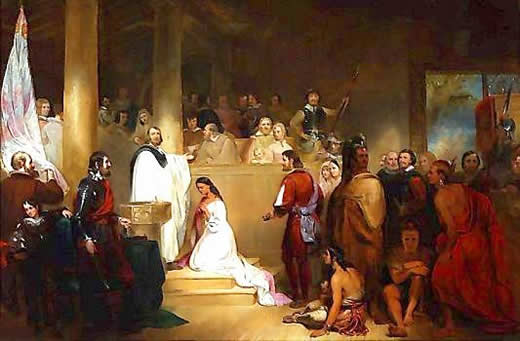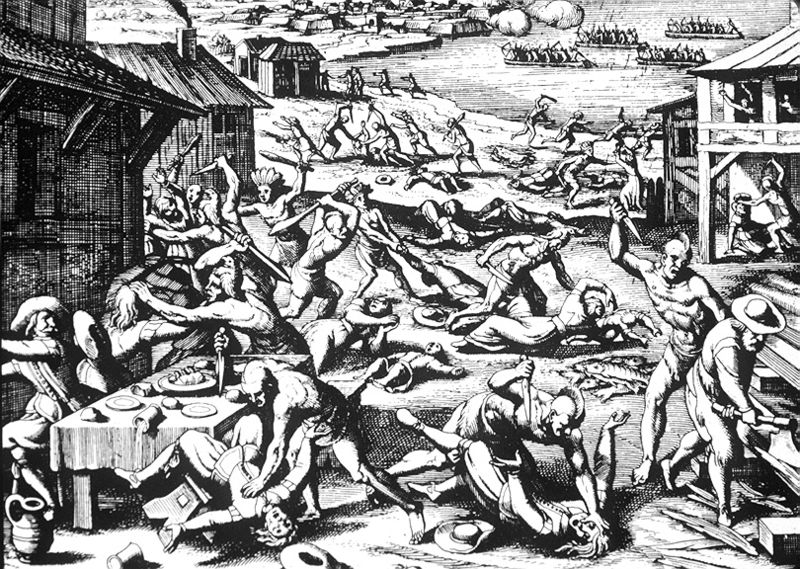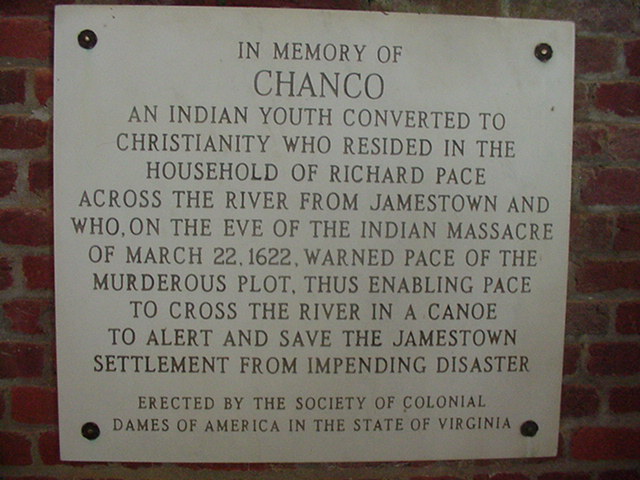Yesterday, I wrote about the founding of Jamestown and pointed out that it wasn’t exactly an evangelical enterprise. Most of those involved were nominally Christian—born Anglican—and never had committed their lives to the Lord. I left you with some hope, though. I said there was another part of the story. That’s where I’m going today.
First, the Virginia Company that sent out the Jamestown settlers did have in its ranks some genuine Christians who wanted the new colony to help convert the natives to the faith. The Company also gave some instructions to the settlers that stemmed from a concern for Christian conduct. If you go to historic Jamestown today, the large monument that was dedicated back in 1907, with President Theodore Roosevelt in attendance, sports a comment from the Company. I’ve posted a picture of it here; since it is a little hard to read, I’ll transcribe it below:
It says, “Lastly and chiefly the way to prosper and achieve good success is to make yourselves all of one mind for the good of your country and your own, and to serve and fear God, the giver of all goodness. For every plantation which our heavenly father hath not planted shall be rooted out.” This was not only an instruction, but a warning.
The minister who came on those first ships was Robert Hunt, by all accounts a truly godly man respected by everyone. He is credited with helping to save John Smith’s life on the voyage over when others wanted to hang him. Upon landing at what is now Virginia Beach, Hunt erected a cross and held a service of thanksgiving. Smith writes fondly of him and mourns his early death in 1608. At the historic site today is a memorial to Hunt, depicting him officiating the Lord’s Supper.
Other dedicated ministers followed Hunt—Alexander Whitaker and Richard Buck. Whitaker became the primary teacher for Pocahontas as he led her to the Christian faith. A famous painting of the baptism of Pocahontas can be found in the Capitol Rotunda in Washington, DC.
Sadly, Whitaker drowned trying to save the life of another. All indications are he was a genuine Christian. As for Pocahontas, her conversion wasn’t just a show. She took her new faith seriously, changed her name to Rebecca, and married John Rolfe, one of the settlers. She then went to England. Unfortunately, she died there, probably from pneumonia, but the testimony of her death shows she was calm and peaceful, accepting it from God’s hand.
When she arrived in England, Pocahontas had an entourage of natives with her, one of whom, a young teenage boy, was adopted into the family or George Thorpe. The boy died soon after, victim of some disease for which he had no immunity apparently, but his new “father,” Thorpe, took that as his cue to do God’s will by going to America and helping establish a college for native youths, teaching them not only the English language but seeking to lead them to the Christian faith.
Thorpe (for whom no portrait exists) dedicated himself to befriending the natives for the gospel’s sake. He was kind to them, reached out to the chief, Opechancanough, and shared the faith. All seemed to be going well, but Opechancanough deceived the settlers by staging a surprise uprising in 1622, hoping to wipe out all English settlers:
George Thorpe, tragically, was one of the victims that day. Opechanacanough, though, did not achieve his objective for one reason. A plaque on the wall in the Jamestown church tells the story:
One of the natives, his life changed by the Christian faith, was the hero of the day. This shows also that the real divide in this world is not between races or ethnicities, but between those who have submitted themselves to the Lord and those who have not.
So, even though Jamestown was not primarily a Christian settlement in the way I would view a Christian endeavor, nevertheless some of the individuals involved were decidedly Christian and helped pave the way for the gospel message in a new land.





